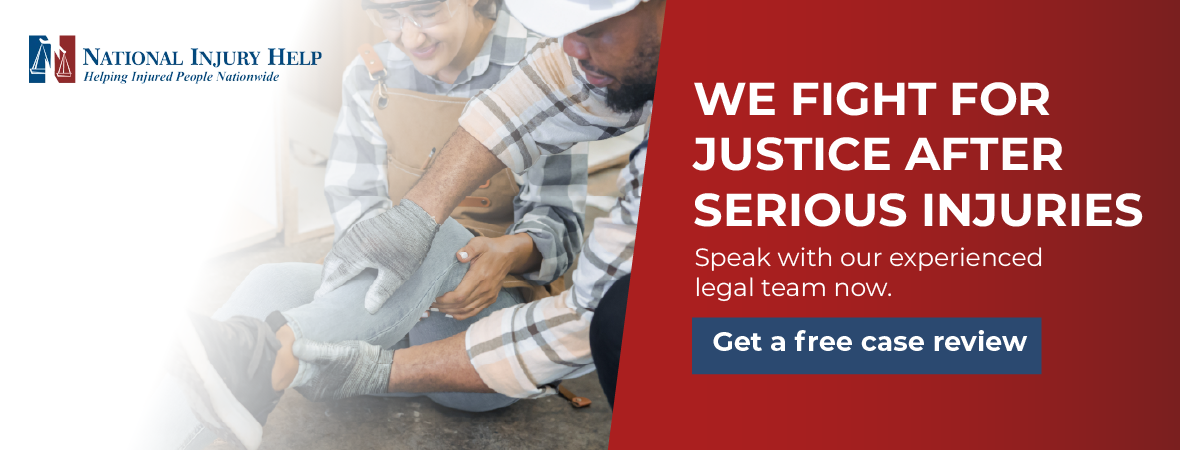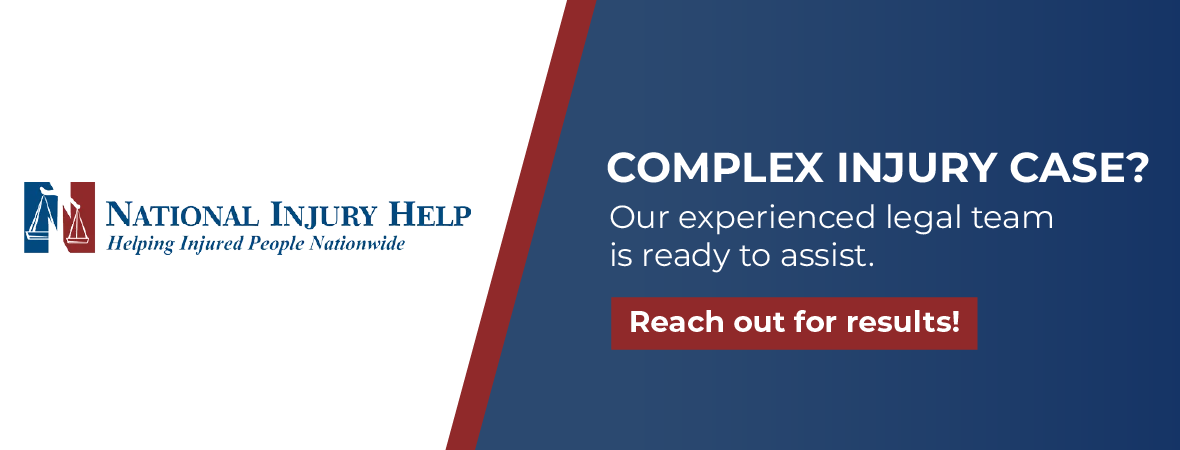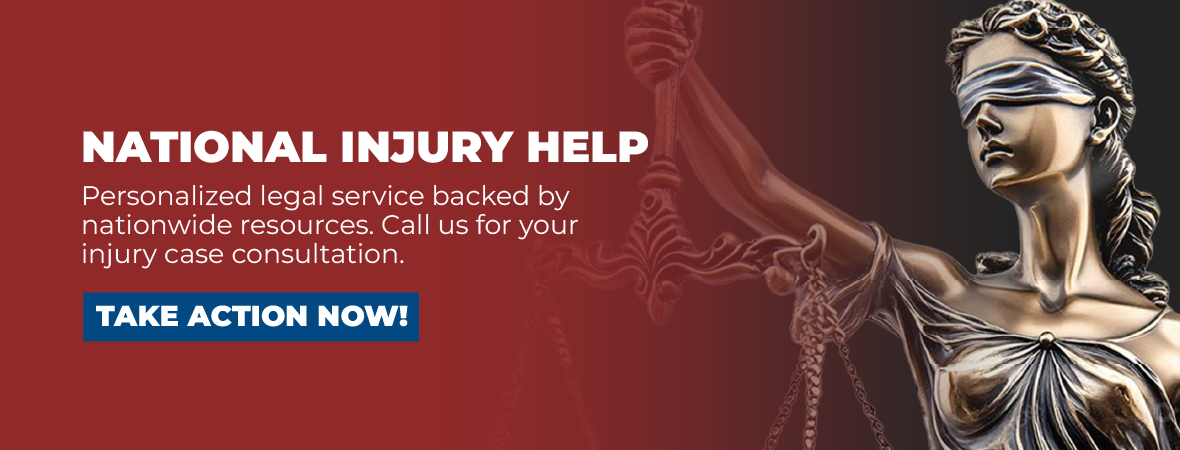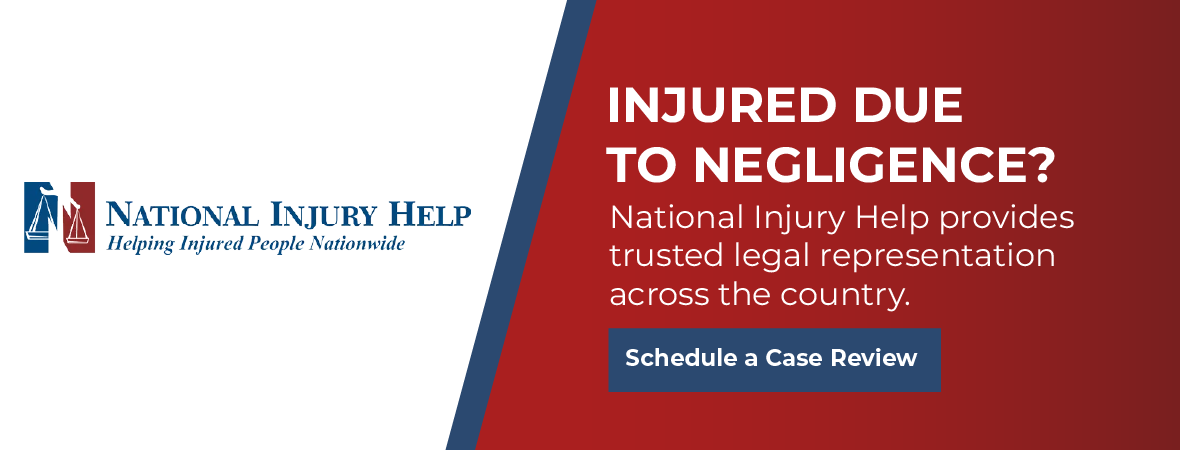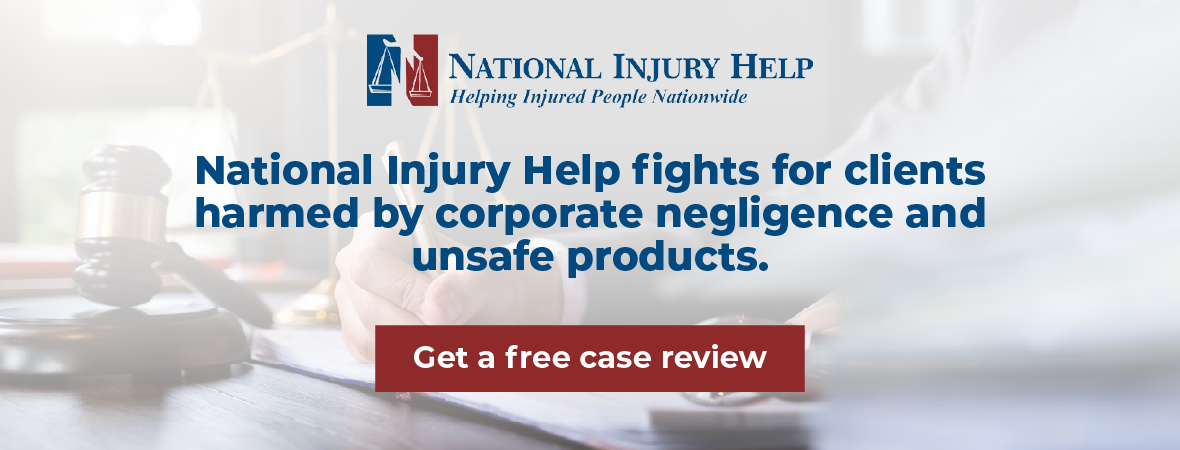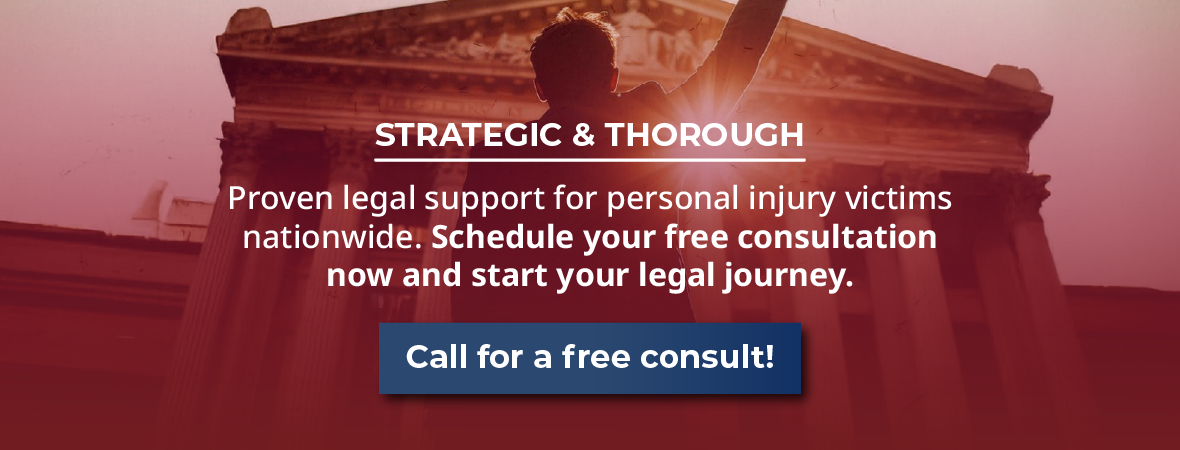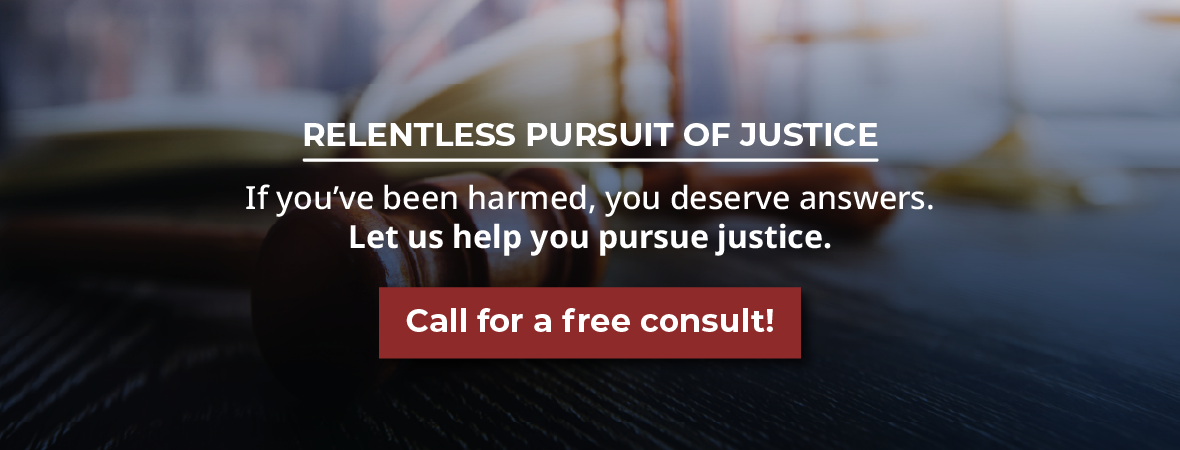If you were injured in an accident in Peoria, you may be dealing with medical bills, pain, and financial stress. This article explains how a personal injury lawyer can help you get the compensation you need. Contact National Injury Help by calling 1 (800) 214-1010 today. We are here to protect your rights and guide you through every step of the process.
Life can change in seconds. One careless driver, one loose handrail, or one dog that gets free from a yard can leave you facing pain, medical bills, and questions about how you will cover rent while you heal.
If that moment happened in Peoria, Arizona, you have legal rights. Local laws allow you to pursue money for hospital stays, lost paychecks, therapy, and the daily frustrations that come with an injury.
Navigating those laws, however, often feels overwhelming when you are already juggling doctor appointments and insurance paperwork. At National Injury Help, we guide neighbors through every step so they can rebuild without extra stress. On this page, we explain the most common injury cases in Peoria, the rules that shape those claims, and the concrete actions you can take today to move forward with confidence.
Common Personal Injury Cases in Peoria
Injury law covers a wide range of harmful events. Many people think first of car collisions on Loop 101, but your claim might come from a slip on a freshly mopped grocery floor or a bite from an unrestrained dog in a neighborhood park. Understanding these categories helps you see where your own experience fits.
Car Accidents
Car wrecks remain the number one cause of injury claims in Peoria. Rear-end crashes happen on Bell Road during rush hour when traffic suddenly slows. T-bone impacts occur at confusing intersections where a driver ignores a red light. Hit-and-run collisions, although illegal, still occur in busy parking lots outside Arrowhead Towne Center. Each scenario demands quick evidence collection, such as police reports and photos, before vehicles are repaired and memories fade.
Motorcycle and Bicycle Accidents
Riders enjoy Arizona sunshine all year, yet motorcycles and bicycles provide little protection. A tap from a turning SUV can send a biker flying onto asphalt, resulting in broken bones and road rash that require lengthy rehabilitation.
Cyclists on the New River Trail face similar dangers when vehicles exit driveways without looking for two-wheeled traffic. Injuries in these cases are often severe because no frame or airbag softens the hit.
Truck and Commercial Vehicle Accidents
Large trucks deliver goods daily along Grand Avenue and the Agua Fria Freeway. When a tractor-trailer or delivery van crashes, the claim involves federal safety regulations, onboard electronic logs, and corporate insurers. Handling these layers without legal help can feel like wrestling three opponents at once. Properly securing evidence, such as black-box data, becomes crucial because companies can legally overwrite it after a short window.
Pedestrian Accidents
Crosswalks near school zones and residential intersections see foot traffic every morning and afternoon. A child or adult in a crosswalk has the legal right of way, yet distracted drivers still rush through. Pedestrians have no protection, so even a slow-moving car can cause head trauma or spinal injuries that require months of therapy and may result in permanent limitations.
Dog Bites and Animal Attacks
Arizona law often holds dog owners strictly responsible for bites. Even friendly pets can cause deep puncture wounds that lead to infection. A quick trip to the emergency room often turns into rabies shots, tetanus boosters, and stitches that leave scars. Psychological trauma follows, especially for children who once loved animals and now fear them.
Slip and Fall Incidents
Wet tile near a soda fountain, uneven pavement outside a store, or clutter left on a supermarket aisle can turn a normal step into a painful fall.
Property owners owe visitors a duty to keep premises reasonably safe. When they fail that duty, you can seek payment for medical bills, lost workdays, and pain. Evidence such as surveillance footage and cleaning logs adds weight to your claim.
Wrongful Death
When negligence leads to loss of life, Arizona law lets close family members file a wrongful death action. Compensation can include funeral costs, lost household income, and the loss of love, guidance, and companionship.
No amount of money replaces a person you loved, yet financial support can give a family space to grieve without immediate money worries.
Arizona Personal Injury Law: Essential Rules to Remember
Laws set the boundaries for negotiating and, if needed, for arguing in court. Knowing these rules gives you leverage when insurers push back.
Comparative Negligence Rule
Arizona follows a pure comparative negligence system, found in section 12-2505 of the state statutes. You can still recover damages even if you share some blame. Maybe you were looking at your phone when you stepped onto a slippery floor, and the property owner had failed to post a warning sign.
A judge or jury assigns percentages of fault to each party. If you are twenty percent at fault and your losses total one hundred thousand dollars, you can still collect eighty thousand. Understanding this rule helps you avoid falling for insurer statements that claim partial blame ends your case.
Statute of Limitations
Most personal injury lawsuits must begin within two years from the date of injury. Miss the deadline, and courts likely dismiss your case, no matter how strong the facts. The clock starts on the day of the accident or, in rare situations, when you first discover the injury. Filing early lets your lawyer gather fresh evidence long before time runs out.
Duty of Care and Breach
Every injury case begins with the duty of care. A driver owes others the duty to follow traffic laws. A store manager owes shoppers the duty to clean spills promptly. When someone violates that duty, we call it a breach. Proving breach often involves records, eyewitnesses, and expert testimony. Once the breach is clear, the next question is whether it caused your injury.
Burden of Proof
In civil courts, you do not need to prove negligence beyond a reasonable doubt. You only need to show it is more likely than not that the other party’s actions caused your harm. This standard is called the preponderance of the evidence. Strong documentation, medical records, and expert opinions help you reach that “more likely” threshold.
What to Do After an Accident or Injury in Peoria
Acting quickly safeguards both your health and your claim.
Step 1: Get Medical Treatment Right Away
Your health should always come first. Even if you think the injury is minor or feel okay at the moment, go see a doctor. Some injuries, like internal bleeding, brain trauma, or soft-tissue damage, may not show symptoms immediately. The shock of the accident or a rush of adrenaline can mask pain, making it easy to underestimate the damage.
Go to an emergency room, urgent care clinic, or your family physician as soon as possible. If paramedics arrive at the scene, let them check you out and follow their recommendations. A medical exam not only helps you recover faster but also creates a written record that connects the injury to the accident. This record will be extremely important later if an insurance company tries to claim your injury was caused by something else.
Keep in mind that delayed treatment can raise red flags. If you wait too long to see a doctor, insurers may argue that your injury must not have been serious or may have occurred after the incident.
Step 2: Report the Incident Promptly
Every accident needs to be reported to the proper authorities. In a car crash, call the police right away and wait at the scene until they arrive. Officers will create a report that includes names, statements, vehicle damage, insurance information, and any traffic violations. Request a copy or write down the report number for future reference.
If the accident happened in a store, restaurant, or workplace, report it to the manager or property owner as soon as possible. Ask them to create an incident report and request a written copy. In cases involving dog bites, call animal control so the incident is officially logged.
Timely reports help establish a clear timeline and confirm that the responsible party was informed. If you wait days or weeks to report the accident, it gives the other side room to deny what happened or claim it wasn’t serious.
Step 3: Gather as Much Evidence as You Can
Evidence fades fast, especially in public places or busy intersections. If you are physically able, use your phone to take pictures and videos right after the accident. Capture the scene from multiple angles.
Take close-ups of visible injuries, damaged property, skid marks, weather conditions, or anything else that seems relevant. If you slipped in a store, photograph the hazard, whether it’s a wet floor, loose mat, or broken tile.
Also, contact information must be collected from any witnesses. Names and phone numbers are enough. Their statements later can support your version of events, especially if the other party disputes what happened.
As soon as you get a quiet moment, write down everything you remember while it’s still fresh. Note the time, location, what you were doing, what the other person did, and anything you heard or saw. Even small details matter.
In the days that follow, keep a daily journal of your symptoms, pain levels, sleep issues, and how your injury affects work, hobbies, or family life. These entries give personal insight into your recovery and are valuable in explaining your suffering to insurers or a jury.
Step 4: Save All Medical Records and Receipts
Every treatment, test, and expense should be documented and stored in one place. Keep copies of:
- Emergency room bills
- Follow-up doctor visits
- Physical therapy appointments
- Lab test results
- Prescription and over-the-counter medication receipts
- Medical devices like crutches or braces
- Mileage logs to and from medical appointments
- Co-pays and insurance statements
These documents show exactly how much the injury has cost you. Insurers will not pay for damages they cannot see, so the more organized you are, the better. You can also use these records to build a timeline that shows how long your recovery lasted and whether you missed work or school during that period.
Step 5: Contact a Peoria Personal Injury Attorney Early
Legal guidance from the beginning can make a huge difference. A personal injury attorney knows how to protect your rights and avoid the traps that insurance companies often set. For example, insurers may ask for a recorded statement or medical release early on, claiming it’s routine. In reality, these tactics are often used to find ways to reduce your payout.
Your attorney can take over communication with insurance adjusters and gather the strongest possible evidence. They also ensure that you meet important legal deadlines. In Arizona, most personal injury claims must be filed within two years of the date of the injury. However, cases involving government agencies or public property often have shorter notice requirements, sometimes as little as 180 days.
An experienced lawyer will:
- Send preservation letters to secure surveillance footage or vehicle data before it disappears
- Consult medical experts to explain your diagnosis and long-term needs
- Hire accident reconstruction professionals, if needed, to explain how the crash occurred
- Calculate the full value of your claim, including lost income and future care costs
- Negotiate with insurance companies and file a lawsuit if needed
Most injury lawyers in Peoria work on a contingency fee basis, meaning you pay nothing upfront and owe nothing unless they recover money for you. This makes legal help affordable and accessible for everyone, regardless of financial situation.
What Compensation Can You Recover after an Injury in Peoria
In Peoria, Arizona, injury victims have the right to pursue damages when someone else’s negligence caused the harm. These damages fall into several categories. Each type serves a specific purpose, from covering medical bills to accounting for lost future opportunities.
Let’s break down what compensation you may be able to recover after an injury in Peoria.
Economic Damages: The Financial Losses You Can Prove
Economic damages are the easiest to calculate because they involve direct, measurable expenses. These costs are typically supported by receipts, invoices, wage statements, and other documentation.
Medical Expenses
Medical bills are often the largest component of an injury claim. Compensation may include:
- Emergency room visits
- Hospital stays and surgeries
- Physical therapy
- Chiropractic care
- Imaging tests like MRIs or X-rays
- Prescription medications
- Durable medical equipment such as crutches, braces, or wheelchairs
- In-home nursing care
Even future medical expenses can be claimed if your injury requires ongoing treatment. Your doctor’s reports and expert medical opinions help outline what future care may be needed.
Lost Wages
If your injury forced you to miss work, whether for days, weeks, or months, you may recover the income you would have earned during that time. This includes:
- Hourly wages or salary
- Overtime pay
- Bonuses or commissions
- Sick days or vacation time used during recovery
Documentation such as pay stubs and employer letters helps prove this loss.
Property Damage
If the incident involved damage to your personal property, you may be compensated for repairs or replacement. This could apply to:
- Your vehicle is in a car crash
- A damaged phone, laptop, or watch
- A bicycle or motorcycle
- Clothing or accessories
Be sure to keep repair estimates and receipts to support this part of your claim.
Travel and Out-of-Pocket Costs
Some costs are small individually but add up quickly. You may also recover money spent on:
- Transportation to and from doctor appointments
- Rental cars while your vehicle is repaired
- Parking fees at hospitals or clinics
- Hotel stays for long-distance treatments
Non-Economic Damages: The Pain You Cannot See
Not all harm shows up on a bill. Some of the most life-altering effects of an injury are emotional and personal. Arizona law recognizes these damages and allows victims to seek compensation for them as well.
Pain and Suffering
This covers the physical pain caused by the injury itself as well as the discomfort from treatments and rehabilitation. Pain may include:
- Chronic aches
- Nerve damage
- Muscle weakness
- Limited range of motion
The severity, duration, and impact on your daily life all factor into how much is awarded.
Emotional Distress
Mental and emotional challenges can be just as serious as physical wounds. Many injury victims suffer from:
- Anxiety
- Depression
- Sleep disturbances
- Panic attacks
- Loss of confidence
Therapy notes, psychiatric evaluations, and testimony from loved ones can help show how your mental health has been affected.
Loss of Enjoyment of Life
If your injury prevents you from doing the things you love, such as playing sports, hiking, dancing, or even gardening, you may receive damages for this loss. The law acknowledges that being cut off from your passions diminishes your overall quality of life.
Loss of Earning Capacity: A Long-Term Financial Hit
Some injuries do not just affect your health for a few weeks; they reshape your entire career path. If your injuries make it impossible to return to the same type of work or reduce your productivity, you may qualify for compensation based on lost earning capacity.
Experts compare your earnings before the injury to what you are expected to earn now. Factors include:
- Your age
- Occupation
- Education
- Work experience
- Job requirements
- Medical limitations
For example, a construction worker who loses use of a hand may not be able to return to the same physical job. A professional pianist with a wrist injury may never perform again. These losses are future-focused and often require expert opinions from economists or vocational analysts.
Wrongful Death Damages
In the most tragic cases, an accident leads to someone’s death. Arizona allows close family members to file a wrongful death claim to recover damages on behalf of their lost loved one.
Who Can File?
Typically, the following individuals may be eligible to file:
- Spouse
- Children
- Parents
- Personal representative of the estate
What Can Be Recovered?
Wrongful death compensation may include:
- Funeral and burial expenses
- Medical costs incurred before death
- Loss of future income that the deceased would have earned
- Loss of benefits such as health insurance or retirement contributions
- Emotional loss, including loss of companionship, support, and affection
The purpose is not to put a price on a person’s life but to provide financial relief and acknowledgment of what was taken.
Punitive Damages: Punishing Extreme Negligence
Punitive damages are different from other types. They are not meant to compensate you, but rather to punish the wrongdoer and discourage others from behaving the same way.
These are rare and only awarded when the responsible party acted with intentional harm or extreme recklessness. Examples include:
- Drunk or drugged driving
- Street racing through residential areas
- A company knowingly selling a dangerous product
- A landlord ignoring multiple complaints about a collapsing staircase
Arizona courts carefully examine whether punitive damages are appropriate. When they are awarded, the amounts can be substantial.
How Are Damages Calculated in Peoria?
Arizona follows a comparative negligence system. This means you can still recover compensation even if you were partly at fault. However, your total award will be reduced by your percentage of fault. For example, if you were found 20 percent responsible and awarded $100,000, you would receive $80,000.
Jurors or insurance adjusters consider multiple factors when calculating compensation:
- Your age and life expectancy
- Health before the injury
- The seriousness of your injuries
- Length of recovery or permanence
- Emotional impact
- How much were you contributing financially to your household
Your attorney works with medical experts, financial professionals, and vocational consultants to build a strong case and present a full picture of your losses.
How a Peoria Personal Injury Lawyer Builds a Strong Case for You
An effective claim follows a clear process from investigation to possible trial.
1. Conduct a Thorough Investigation
Every strong case starts with facts. Your lawyer will begin by collecting every piece of evidence that helps prove what happened and why the other party should be held responsible.
Gather Police Reports and Initial Records
The first step usually involves ordering official police or incident reports. These documents provide a timeline, driver statements, witness names, and initial fault assessments. In premises liability cases, like slips and falls, incident reports from stores or restaurants serve a similar purpose.
Obtain Surveillance Footage and Photos
Surveillance footage can be crucial. A nearby gas station camera might show a driver speeding or running a red light. A store’s internal security video might reveal that no one cleaned a spill for hours before someone slipped. Quick action matters here because many businesses delete video footage within a few days unless someone preserves it early.
Review Scene Evidence
Your attorney may visit the accident scene or send an investigator. They will take measurements, locate traffic signs, or note sidewalk cracks and lighting issues. In truck crashes, they can request black box data, driver logs, and maintenance records. For dog bite cases, they will collect veterinary records, leash laws, and reports from animal control.
Every piece of evidence fits together like a puzzle. Even a torn piece of clothing or a single eyewitness can change how much compensation you receive.
2. Work With Medical and Legal Experts
Once the evidence shows what happened, your attorney connects it to how you were hurt. This is where expert witnesses become important.
Medical Experts
Doctors can explain how your injuries occurred and what the road to recovery looks like. They can describe the severity of your injuries, the type of treatment you will need, and whether you may have permanent limitations. This medical testimony helps justify the value of your claim.
For example, a neurologist may explain the long-term effects of a brain injury. A physical therapist might provide insight into how long mobility will be restricted after a spinal fracture. These expert opinions give your case the credibility it needs when negotiating with insurers or arguing before a jury.
Accident Reconstruction Specialists
In motor vehicle accidents, especially those involving high speeds or conflicting witness accounts, accident reconstruction experts can prove what really happened. Using science, these specialists examine vehicle damage, skid marks, road design, and more to explain how the crash occurred and who caused it.
Financial Experts
If you have lost income or will never return to your previous job, an economist or vocational expert may step in. They calculate how much money you have lost already and how much more you stand to lose over your lifetime. These projections strengthen your claim for long-term damages.
3. Handle All Insurance Negotiations
Dealing with insurance companies can feel like an uphill battle. They have experienced adjusters and legal teams trained to minimize payouts. That is why having a personal injury lawyer in your corner makes such a big difference.
Manage All Communication
Once you hire an attorney, you no longer need to speak directly with the insurance company. Your lawyer will handle all phone calls, emails, and letters. This prevents you from saying anything that might hurt your case and ensures that no important deadlines are missed.
Push Back Against Denials or Lowball Offers
Insurance adjusters often try to argue that your injuries are not serious, that you waited too long to get treatment, or that you were partly to blame. A good attorney pushes back with documentation, legal arguments, and evidence.
They draft clear, detailed demand letters that explain your injuries, outline the costs you have faced, and support everything with records and expert reports. This level of preparation often leads to higher settlement offers.
4. Prepare for Litigation if Necessary
While most personal injury cases settle before trial, the best outcomes often come from preparing as if you will need to go to court.
File the Lawsuit on Time
If the insurance company refuses to settle or delays too long, your lawyer may file a formal complaint in the appropriate court, usually the Maricopa County Superior Court. This filing starts the litigation process and preserves your right to seek compensation.
Exchange Evidence and Take Depositions
During a process called discovery, both sides exchange evidence. Your car accident lawyer in Peoria may take depositions, which are sworn interviews of the other driver, witnesses, doctors, or company representatives. These interviews often reveal information that the other side did not expect to share.
Use Trial Readiness as Leverage
When insurance companies see that you have a lawyer prepared to go to trial, with expert reports, medical documentation, and strong testimony, they often become more willing to settle. They know a trial is expensive and risky, so they may offer more to avoid it.
5. Offer a Contingency Fee Arrangement
Legal costs should never stop you from seeking justice. That is why most personal injury lawyers work on a contingency fee basis. This means:
- You pay nothing upfront.
- The lawyer only gets paid if you win.
- The fee comes out of the settlement or court award.
If your case does not succeed, you owe no attorney’s fee. This arrangement gives you full access to the legal system with no financial risk. It also means your lawyer is motivated to fight hard for every dollar you deserve, because their payment depends on your success.
FAQs About Personal Injury Claims in Peoria
How long will my injury case take?
Simple claims with clear liability can settle in a few months. Complex cases involving severe injuries or multiple defendants may last a year or more, especially if they reach trial.
What if I was partially at fault?
You can still recover under Arizona comparative negligence rules, even if you were partially at fault. Your award is simply reduced by your share of the blame.
How much is my claim worth?
Every case is unique. We consider medical bills, future treatment, lost income, pain, and many other factors. Only after a full review can we estimate the range.
Should I accept the insurance company’s first offer?
Early offers usually cover immediate bills but ignore future costs, so accepting the insurance company’s first offer isn’t always advisable. Always consult a lawyer before signing any release.
What happens if I do not feel pain until days after the accident?
Delayed pain is common. Seek medical attention as soon as symptoms appear and inform your doctor about the original incident. Proper documentation links late-arising injuries to the event for legal purposes.
Talk to a Peoria Personal Injury Attorney
In the aftermath of a serious injury, it can feel like everything is on your shoulders. Medical care, time off work, and rising bills are already tough to manage. Trying to deal with insurance companies at the same time only makes things harder. That is where we come in.
At National Injury Help, we help accident victims across Peoria stand up for their rights. Whether your injury happened in a car crash, a slip and fall, or a dog attack, our legal team is ready to step in and build your case. We handle everything from the first phone call to the final settlement or verdict, so you can focus on your recovery.
We know how injury claims work in Arizona. We understand the local roads, courts, and insurance tactics. From Vistancia to Old Town Peoria, we are proud to support our neighbors with personal attention and serious results.
Your first consultation is completely free, and you never pay us unless we recover money for you. We will listen to your story, explain your legal options in plain language, and begin gathering the evidence needed to strengthen your claim.
There is no reason to wait. Each day that passes could mean lost evidence or missed deadlines. Call 1-800-214-1010 today to speak with a personal injury attorney in Peoria who will fight for the full compensation you are owed. Let us handle the legal battle while you focus on healing and moving forward.





